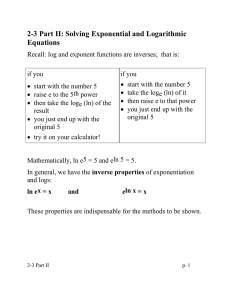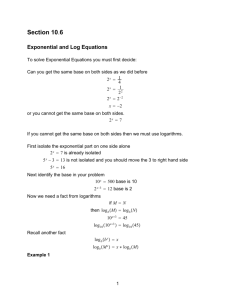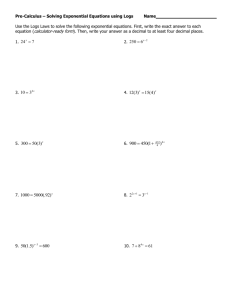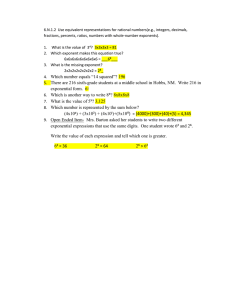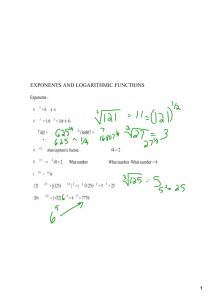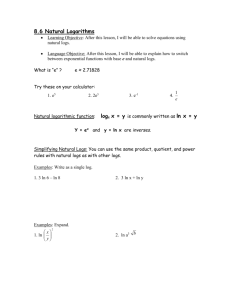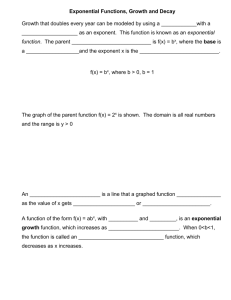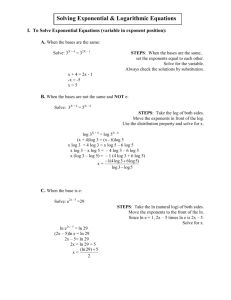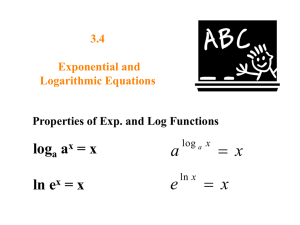Notes 7.4: Logarithmic Basics What is an exponential function
advertisement
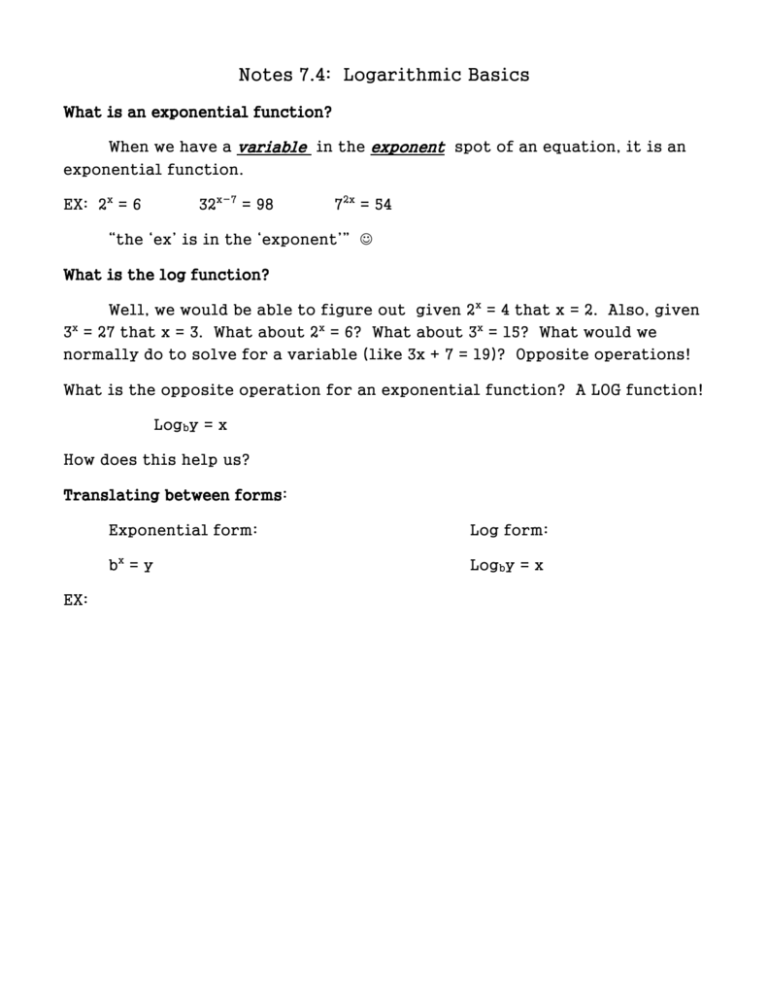
Notes 7.4: Logarithmic Basics What is an exponential function? When we have a variable in the exponent spot of an equation, it is an exponential function. EX: 2x = 6 32x-7 = 98 72x = 54 “the ‘ex’ is in the ‘exponent’” What is the log function? Well, we would be able to figure out given 2x = 4 that x = 2. Also, given 3x = 27 that x = 3. What about 2x = 6? What about 3x = 15? What would we normally do to solve for a variable (like 3x + 7 = 19)? Opposite operations! What is the opposite operation for an exponential function? A LOG function! Logby = x How does this help us? Translating between forms: EX: Exponential form: Log form: bx = y Logby = x Evaluating logs (for now): Because our calculators only recognize base ___________, we have to change the log equations into exponential equations to solve. EX: a) log464 b) log50.2 c) log 1 125 d) log366 5 Common Logs vs. natural logs: The only difference between the two is the base. A COMMON LOG has a base 10, a NATURAL LOG has a base e. Common Log Natural Log Log10x = log x logex = ln x These two logs can be found using the calculator. EX: log 8 = ln 0.3 = log 15 = ln 5.72 =
